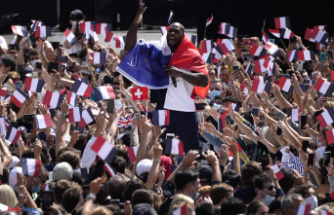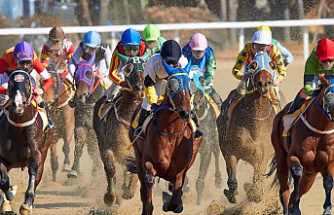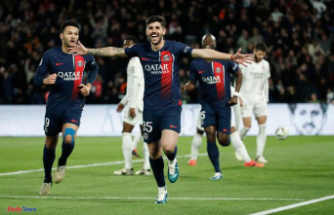Team USA members are often the focal point of every Olympic Games. However, when it comes time to cover Asian American athletes, experts state that the media is often lacking in depth and gives them very little dimension.
Scholars noted that while the number of Olympians from Asia has increased, headlines and stories about Asian American athletes remain stagnant. They continue to focus on athletes' strict parents, sacrifices and discipline. Experts say that while these are important elements in Olympians' lives they have also led to a dangerous history of not showing Asian Americans as human beings. Even within elite sports, this has been a dangerous trend.
Jennifer Ho, president, Association for Asian American Studies said, "If you dig beneath that language and take a look at the larger history and the longer portrayal Asian Americans, in this way, even these positive iterations of talking about Asian American Olympians in the way, it's still using this language of yellow peril, model minority." It's been repurposed, repackaged but still refers to Asian Americans as part a larger collective.
Experts say that the media relied historically on many of these narratives. Experts say that Michelle Kwan's father Danny Kwan was a pivotal, demanding figure behind her success more than 20 years ago. Vincent Zhou''s parents were portrayed in a similar way, making sacrifices to allow their son to win. Although almost all Asian American Olympians have been given the title "family sacrifice", it has been used to describe Alex and Maia Shibutani as well as Mirai Nakasu, and snowboarder Chloe Kim . However, Vincent Zhou's achievements can be attributed to his love for the sport.
Ho acknowledged that Olympians have close-knit relationships to their parents and other people in their lives, but stressed that these narratives are consistently elevated by the media over others. Ho stated that the focus on stories about immigrant communities helps to keep Asian Americans "new" in America, regardless of how long it's been established.
Ho stated that "With the constant narration, especially in Chloe Kim's father story... I don't want it to take away the reality of that relationship." It's attracting attention, but it's also playing into existing scripts.
Tina Chen is a history professor at the University of Manitoba. She is also a member of Skate Canada. Kwan's former coach Frank Carroll has been quoted saying that "Asian skaters learn discipline from Day One." This philosophy is different from American children who are taught "Oh, dear!" He said, "You have the right to believe what you want!"
Chen stated that there is a belief that something is different, and that it's not American enough to be attributed to anything different. "Ultimately, what we are saying is that we don’t recognize Asian Americans in their own rights as citizens. We are always trying to find a difference between them, and the so-called "regular American".
Chen pointed out that these uniform representations also portray Asian American bodies in a collective way as hard-working labor sources. They are not unique in their emotions and over-disciplined. Chen stated that Asian Americans are willing to work hard and will continue to do so, despite the fact that they are not able to express their emotions.
She explained that there is a comfort in knowing that certain people can be disciplined and they will do what you ask."
Ho said that descriptions can be particularly damaging when viewed in context of the model minorities myth. Much of the coverage continues its promotion of a positive immigrant narrative, with Olympic immigrant parents. She said that this trope could be used to put Asian Americans in competition with athletes from other marginalized communities. Chen stated that mainstream society becomes more comfortable with these narratives as it is "the story about assimilation" over time.
She explained that Asians should follow the rules and try to do their best within the given framework. This is something she should be thankful for.
It's often more complicated to see the reality behind Olympians than we see on television. Erica Rand, author " Red Nails and Black Skates: Gender and Cash and Pleasure on and Off the Ice" said that the tendency to pick "strict Asian parent" stories is especially evident when you are at the rink with Olympic athletes.
"The 'other culture' where parents put their children through a lot of hard work and train them like robots, that description is not fair. Rand stated that there are many ways to talk about white skaters. Rand said that you may see a variety of parents at rinks, some demanding, some hovering, and others emphasizing their children's joy in skating. This is a wide range of people. However, you won't see all parents being discussed in the same manner.
Zhou stated that it takes a village to raise an Olympic athlete regardless of their background. He said that it would be negligent to overlook the passion and love that Zhou and other elite athletes have for their sport. He said that the trope removes athletes' agency and that they don't want it.
"While people may say, This person's parents forced him to do that,'... on the ice we're the only ones in control of ourselves and our bodies," Zhou stated.
Experts say that increasing diversity in staff is essential to ensure humanizing news coverage. They said that while lived experience is crucial for reporting on marginalized communities it can be further enhanced by racial literacy.
Chen stated that there has been so much effort and media coverage about anti-Asian racism. Chen said that the media coverage on anti-Asian racism isn't informing people about sports. "I think we should ask ourselves, "Are we complicit? How are we expecting people tell these stories?"












